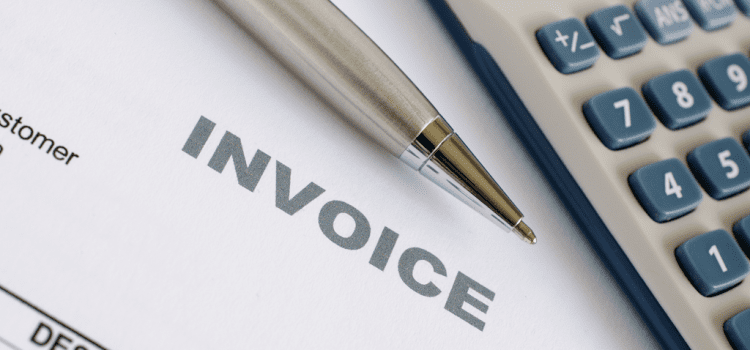My article on the founding of Easle may have betrayed a certain amount of approval for the platform. I liked its transparency and its clear, fair fee structure. So it’s good to report that the company are doing something else right: campaigning for action against systematic late payers.
Freelance voices
The campaign comes after the company surveyed nearly 100 freelancers “to understand a bit more about late payment practices, clients’ attitude about it and the effect it has on freelancers’ lives.”
Listening to freelance voices via the survey responses and the anecdotes the freelancers shared, Easle found that:
- Every respondent had received late payment
- 50% said payments were often or always late
- 9% said they felt late payment was a serious problem
So how late is late?
- 6% said their invoices are paid a month or more late every time. The standard payment terms of 30 days means these freelancers are waiting at least 60 days for payment for work they’ve completed.
- 2% said that had waited 6 months or more for payment—or are still waiting for payment a year on!
Late payers and their excuses: the good, the bad and the ugly
Most freelancers felt large companies were the worst offenders, although for a few, smaller business had caused the biggest problems. Companies of all sizes seemed to be culprits. However, freelancers had generally found the public sector much better than the private sector at paying on time.
“The best are the public sector organisations – Ofcom, the BBC, Channel 4,” said one freelancer. “There is a clear cultural difference between public and private sectors.”
How do late payers respond when challenged, and what excuses do they offer? From the freelancers’ responses:
- 40% of clients either don’t respond or don’t seem to care
- 21% blame the late payment on the accounting department
One freelancer said they felt accounting departments “couldn’t give a damn.”
“Individuals are apologetic and lovely, but… I think in some companies it’s actually company policy to pay invoices late.”
Only 19.1% of freelancers said that they get an apology from late payers and 19% feel like there is an abuse of power, and clients disrespect them. The freelancers surveyed feel there is a disconnect between how companies view their payment of employees and how they view the payment of freelancers.
“Even though my day rate is high, annually I earn as much as a waitress. Clients don’t appear to understand that their money literally puts food on the table,” said one freelancer.
The most common excuses reported by the respondents will sound all too familiar to freelancers:
“Sorry, the accountant is only in on Fridays.”
“I think it slipped through the net.”
“Sorry, your invoice doesn’t appear to be in our inbox , can you send it again?”
“Sorry, it went to spam, I’ll get this looked at now.”
However, some excuses—and clients—are more unreasonable.
“I had a large, national chain suddenly decide they didn’t like the work several months after signing it off and refused to pay. I was on maternity leave at the time and so relying on this chunk of money to come in. It was incredibly stressful. It makes you want to quit.”
The effect of late payment
The two major effects on freelancers are stress (as in the case above) and, of course, problems due to lack of money. One respondent said late payments had worsened their anxiety and contributed to their mental health problems.
Some freelancers reported that they end up writing off late invoices altogether, and lose money on jobs that have been delivered. One third of freelancers had to write off some invoices and among those who did this, the average amount lost per year £2,380! One freelancer reported that they write off £12-20k each year (although that does raise the question of where they’re getting their work from, and whether they need to change those sources!). Others have admitted to seeking invoice finance to help their cash flow.
“I schedule my life and bills around those payments,” explained one respondent. “More than once I’ve gone completely broke and still had to work. No food, just enough for transportation.”
Easle: campaigning for change
“In our opinion, there’s a serious disconnect between company processes and regulation around freelancers – with companies reticent to change despite benefiting from a more mobile workforce,” says Easle.
“Awareness needs to be raised on the fact that freelancers actually depend on their work money just as any worker depends on his payroll!”
So what are the solutions? Easle suggests that what we need is development in either tech, finance or HR to improve the relationships and operations between freelancers and their clients. The company points to companies like Coconut Finance, Monese or N26, which are already designing business bank accounts tailored around freelancers’ needs. However, they see the onus for change being predominantly on the client side, “both in terms of attitude and practice.”
“Since late payments come with monetary benefits for companies, we don’t see it being likely that all will adopt fairer ways of working out of the kindness of their hearts.
“Instead we believe there needs to be a government-led initiative to drive change, for example, a trusted third party to whom freelancers could report companies making late payments to create a sort of credit check, or financial penalties.”
Easle points out that the current options for dealing with late or non-existent payments are inadequate, dubbing the small claims court process “costly and time consuming” and late-payment fines as “an inadequate solution,” as the invoice still needs to be paid at some point and cash flow issues aren’t fixed.
In the hope of bringing about change, Easle has launched a petition to ask the Government to ‘establish penalties against companies for systematic late payment of invoices.’
To read more about the petition and sign up, check out Easle’s petition page on the Government site.







